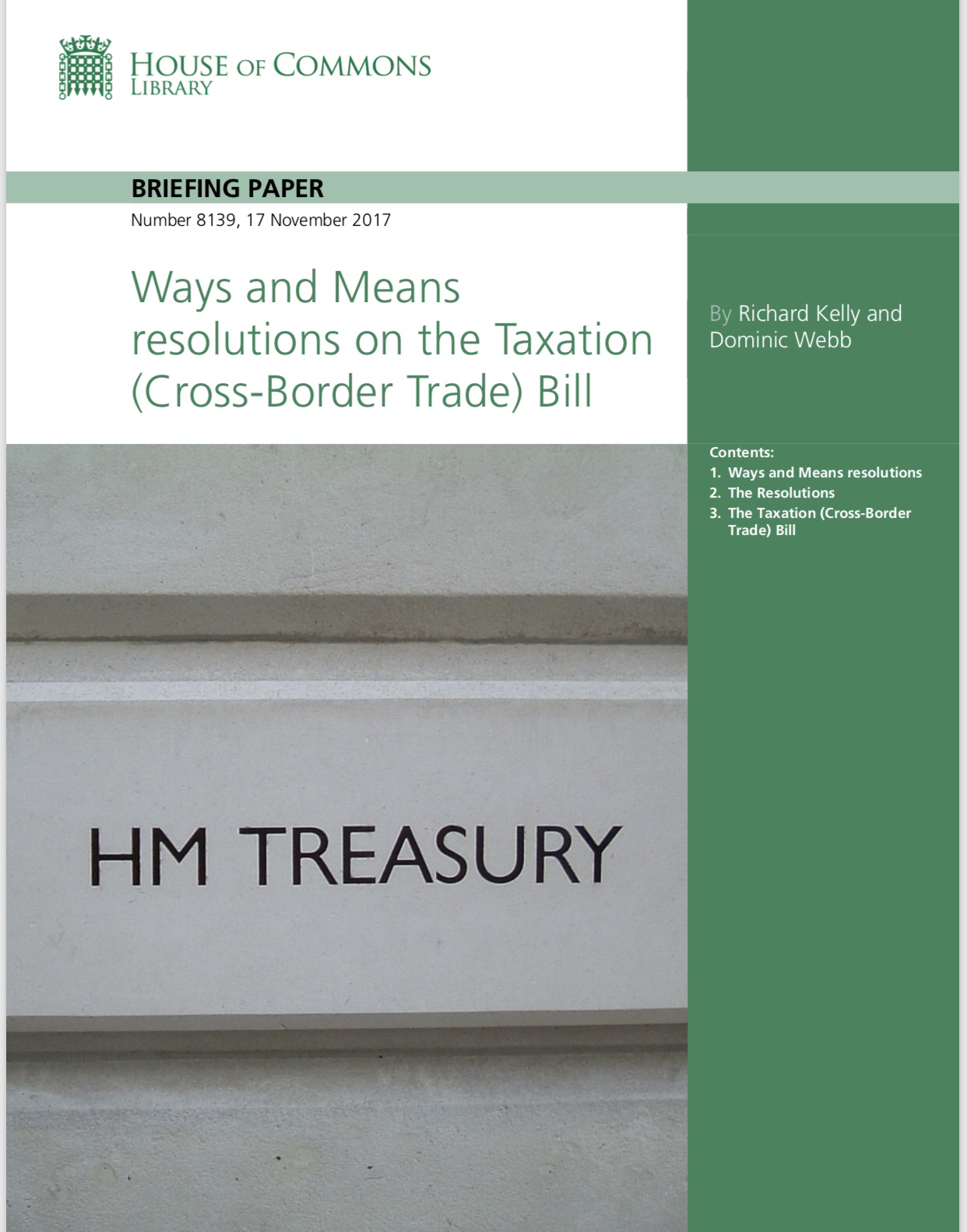More on Brexit
House of Commons has last Friday, 17 November, published a paper on ‘Ways and Means resolution on the Taxation (Cross-Border Trade) bill’.
The summary says that the paper was prepared for the Ways and Means resolutions relating to the Taxation (Cross-Border Trade) Bill. These resolutions are before the House of Commons on Monday 20 November 2017. Ways and Means resolutions The Taxation (Cross-Border Trade) Bill
The Government has announced its intention to bring in a customs bill – the Taxation (Cross-Border Trade) Bill. This will include measures relating to customs, VAT and excise.

The Government set out its approach to customs in a position paper, Future customs arrangements, published in August. A Customs White Paper was published in October. The Government has already published a Trade Bill which contains provisions on areas closely related to those in this Bill. Most law relating to customs is contained the EU’s Union Customs Code (UCC) and its delegated and implementing acts. The UCC is an EU Regulation which is directly applicable in the UK. EU law also provides the framework for VAT and excise rules. The Taxation (Cross-Border Trade) Bill will allow the UK to operate a standalone customs, VAT and excise system after Brexit. Legislation is needed regardless of whether the UK reaches an agreement with the EU on customs. The Bill will allow for the possibility of no deal being reached.
The Customs White Paper said that the Bill will include a number of delegated powers. Customs are particularly relevant to trade across the Irish border. The Government has said it wishes to avoid physical border infrastructure, such as border posts. No agreement has yet been reached with the EU about how this can be achieved.
You must be logged in to post a comment.